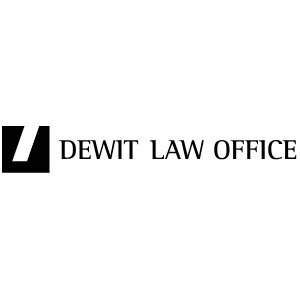Best Structured Finance Lawyers in Brussels
Share your needs with us, get contacted by law firms.
Free. Takes 2 min.
List of the best lawyers in Brussels, Belgium
About Structured Finance Law in Brussels, Belgium
Structured finance refers to complex financial transactions that are typically designed to meet specific funding needs while mitigating certain risks. In Brussels, Belgium, this area of law covers the creation and management of tailored financing solutions that often involve securitisation, collateralisation, and the pooling of assets. Structured finance transactions can encompass asset-backed securities, mortgage-backed securities, collateralised loan obligations, and other innovative funding structures. Brussels, as the political and financial hub of Belgium and a key international center, offers a sophisticated legal environment for structured finance, aligning with both domestic regulations and broader European Union (EU) directives.
Why You May Need a Lawyer
Engaging a lawyer experienced in structured finance can be crucial in several situations. Structured finance deals involve complex documentation, regulatory compliance, risk assessment, and negotiations among multiple parties, including issuers, investors, trustees, and rating agencies. Legal professionals help clients:
- Structure transactions to meet regulatory and commercial goals
- Draft and review detailed agreements and disclosures
- Obtain necessary regulatory approvals
- Address cross-border legal and tax implications
- Resolve disputes among parties or with authorities
- Remain compliant with Belgian and EU laws
Whether you are a corporation, a financial institution, an investment fund, or an investor, legal advice helps safeguard your interests and ensures successful deal execution.
Local Laws Overview
Structured finance in Brussels is shaped by Belgian law as well as EU regulations. Key legal aspects include:
- Securitisation Law - Belgian law provides a legal framework for securitisation vehicles, establishing requirements for their setup, operation, and supervision.
- Banking and Financial Services Regulations - These are governed by the National Bank of Belgium (NBB) and the Financial Services and Markets Authority (FSMA).
- Capital Markets Law - Any offering of structured finance instruments must comply with prospectus requirements and transparency obligations under Belgian and EU law.
- Tax Considerations - Tax treatment of structured finance products depends on the nature of the transaction, and Belgium offers certain fiscal neutrality to securitisation vehicles, subject to conditions.
- Insolvency and Bankruptcy Law - Legal expertise is vital to structuring transactions that protect assets and investor interests in case of insolvency.
- EU Influence - Much of Belgium's structured finance law is shaped by EU-level directives and regulations, such as the Securitisation Regulation, MiFID II, and EMIR.
Staying compliant and effectively navigating these legal frameworks often requires expert legal support.
Frequently Asked Questions
What is structured finance?
Structured finance involves highly complex financial instruments and arrangements that are used to manage risk, raise capital, or improve liquidity, typically through processes like securitisation, collateralisation, and syndication.
Who are the key participants in a structured finance deal in Brussels?
Key participants include originators (such as banks), investors, arrangers, trustees, rating agencies, law firms, and special purpose vehicles (SPVs) or securitisation vehicles created for the transaction.
Is structured finance legal in Belgium?
Yes, structured finance is legal and widely practiced within the robust regulatory framework established by both Belgian law and European regulations.
What are the main risks in structured finance transactions?
Risks include legal and regulatory non-compliance, credit risk, market risk, operational risk, and counterparty risk. Proper legal advice helps identify and mitigate these risks.
How does Belgian law treat securitisation vehicles?
Belgium allows for specific securitisation vehicles that benefit from certain tax and regulatory advantages, provided they comply with relevant laws on formation, supervision, and reporting.
What regulations must be observed for cross-border structured finance deals in Brussels?
Cross-border deals must comply with Belgian law, EU directives and regulations, anti-money laundering laws, and potentially the regulations of the other involved jurisdictions.
Are there tax implications for structured finance transactions?
Yes. The tax treatment depends on the structure of the transaction and the nature of the vehicle. Legal and tax advice should be sought to ensure fiscal efficiency and compliance.
Does structured finance require regulatory approval in Belgium?
Certain aspects, such as the creation of securitisation vehicles and public offerings of securities, may require approval or notification to regulators like the FSMA and the NBB.
Can individuals invest in structured finance products?
Structured finance products are typically offered to institutional or professional investors, but some may be accessible to retail investors, subject to suitability and disclosure requirements.
Why should I consult a specialist lawyer for structured finance in Brussels?
A specialist lawyer provides essential guidance on structuring, documentation, compliance, risk management, and negotiation, increasing the chances of a successful and legal transaction.
Additional Resources
Several resources, organizations, and authorities can help you understand and comply with structured finance law in Brussels:
- National Bank of Belgium (NBB) - The central bank regulates financial stability and supervises banks and financial institutions involved in structured finance.
- Financial Services and Markets Authority (FSMA) - Supervises financial markets, securities offerings, and transparency obligations.
- Belgian Official Gazette - Publishes relevant legislation and regulatory updates related to finance and structured transactions.
- European Securities and Markets Authority (ESMA) - Sets out EU-level regulatory standards affecting structured finance.
- Industry associations such as the Belgian Asset Managers Association (BEAMA) and the Association for Financial Markets in Europe (AFME) often provide informative materials and industry updates.
- Professional law firms in Brussels with dedicated Structured Finance teams offer seminars, articles, and insights into emerging legal issues.
Next Steps
If you need legal assistance in the area of structured finance in Brussels, Belgium, start by defining the specifics of your project and any questions you may have. Research and shortlist law firms or practitioners experienced in structured finance. Prepare documentation and background information to facilitate an effective initial consultation. Do not hesitate to request references or case studies that demonstrate expertise in Belgian and European structured finance matters. Finally, follow up on any action items recommended by your legal counsel, and remain proactive in adapting to regulatory changes that could affect your planned transaction.
By working closely with a specialist lawyer, you can navigate the complexities of structured finance law in Brussels and ensure your transactions are both legally compliant and commercially sound.
Lawzana helps you find the best lawyers and law firms in Brussels through a curated and pre-screened list of qualified legal professionals. Our platform offers rankings and detailed profiles of attorneys and law firms, allowing you to compare based on practice areas, including Structured Finance, experience, and client feedback.
Each profile includes a description of the firm's areas of practice, client reviews, team members and partners, year of establishment, spoken languages, office locations, contact information, social media presence, and any published articles or resources. Most firms on our platform speak English and are experienced in both local and international legal matters.
Get a quote from top-rated law firms in Brussels, Belgium — quickly, securely, and without unnecessary hassle.
Disclaimer:
The information provided on this page is for general informational purposes only and does not constitute legal advice. While we strive to ensure the accuracy and relevance of the content, legal information may change over time, and interpretations of the law can vary. You should always consult with a qualified legal professional for advice specific to your situation.
We disclaim all liability for actions taken or not taken based on the content of this page. If you believe any information is incorrect or outdated, please contact us, and we will review and update it where appropriate.















